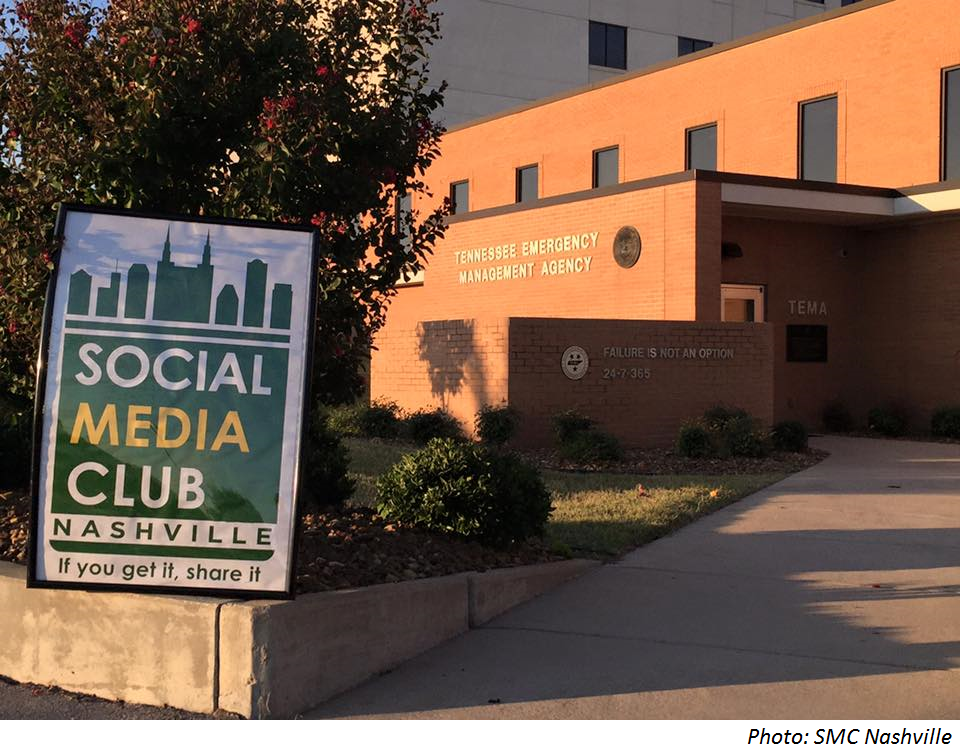Nashville Electric Service (NES) joined the conversation at a recent Social Media Club Nashville event regarding “Responding to a Crisis in a Digital Age.”
An incredibly knowledgeable panel of pros offered insight on communicating during a crisis including Dean Flener, executive officer for external relations for Tennessee Emergency Management Agency, as well as Laurie Parker, NES corporate communications supervisor and Sarah Basel, regional director of communications for the American Red Cross of Nashville Area.
Here’s a look at some of the questions from the group and Parker’s responses on behalf of NES.
Provide a brief overview of your crisis communications plan.
NES’ policy is designed to provide accurate and timely information to all of our key publics and to take appropriate action to end the crisis as soon as possible. Our overriding priority is the safety of our employees and the public.
Walk us through a scenario in which you’ve had to use your crisis communication plan and how you responded.
We’ve utilized our crisis plan during natural disasters, when an electrical equipment failure killed a pedestrian downtown, and during a state audit and resulting news investigation. Our first major test with social media was the 2010 flood. We relied heavily on Twitter and Facebook to maintain communication with our customers. Nashville residents found a unique strength in the days following the flood. Social media allowed NES to be part of the community that was rallying together with the mantra “We Are Nashville.” Our crews restoring power served as a positive symbol that things were returning to normal.
Has your crisis communications plan stayed the same or has it evolved over time?
Like any good plan, it has evolved over time. A lot has changed over the last 10 years. When our crisis communications plan was first implemented, social media did not exist. A couple of years ago, we re-visited our plan to make sure we were considering the growing impact of social media with regards to staffing and logistics during an emergency. We’ve identified key personnel at NES who can assist with timely updates and customer inquiries. Our PR firm is also considered a “backup” resource for social media depending on the severity or length of the crisis.
When it comes to social media, can you explain the plan around your response times and is that different for each type of crisis?
As a general rule, our goal is to provide updates every hour as long as new information is coming in. For storms and natural disasters, it’s important to become the source of information on social media before, during and after events, when it’s possible. It limits the amount of bad information out there and reduces customer dissatisfaction. Every potential crisis is different, but generally speaking, we notice that frustrations increase and customers become more vocal when there is no response or a delay of information being relayed from NES to customers online.
How has social media impacted your crisis communication plan? Do you find that it has positively or negatively impacted your ability to handle a crisis situation?
It means more work for us because it’s another communications channel, but it also cuts down on calls, improves customer satisfaction and helps us tell our story. We’ve seen media outlets utilize the information we are posting to social media, through our online outage map and at NESPowerNews.com.
The challenge is our department size. The office of Corporate Communications has two full-time employees responsible for all internal & external communications, public relations and marketing for the company.
What communications tactics do you use to calm the public during a crisis and what factors do you take into consideration when crafting that plan?
Communicating early and often is key. We reassure customers that they are being heard, and we try to be sympathetic to their concerns and frustrations. Focusing on the work of our dedicated employees and showing those heroic efforts through photos and videos is also very powerful.
What advice (positive or negative) can you give to those just beginning to develop a crisis communications plan?
Think through every possible scenario ahead of time and develop draft messages to address each situation. Identify key individuals both inside and outside of the organization who could serve as spokespersons if needed, and be sure they are trained in crisis communications response. The main thing is remaining flexible with your plan, because no two situations are the same.
Social Media Club Nashville (#SMCnash) unites social media enthusiasts in the Nashville area. This open networking group hosts monthly educational meet-ups and actively contributes best practices, tools and techniques online for like-minded individuals to stay informed within the ever-changing digital landscape. Learn more at smcnash.com.
Tags:
